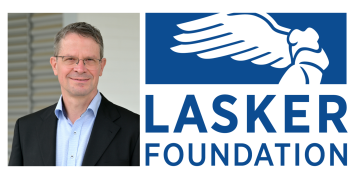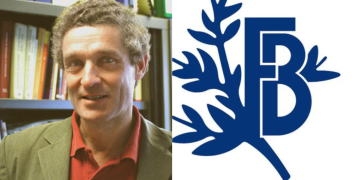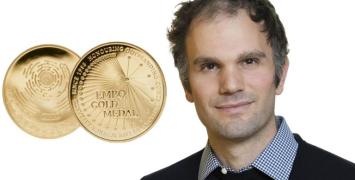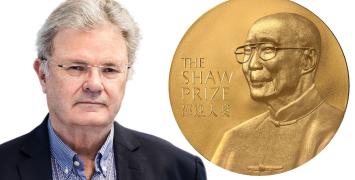ERC grantee Philippe Aghion takes home Economics Nobel Prize
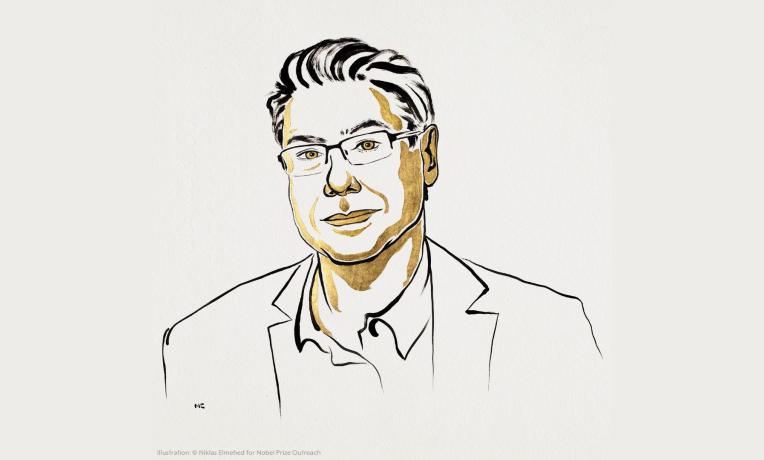
Ekaterina Zaharieva, European Commissioner for Startups, Research and Innovation, said:
'The 2025 Nobel announcements end on a positive note for Europe! Congratulations to Philippe Aghion, Joel Mokyr and Peter Howitt on the 2025 Nobel Prize in Economic Sciences. Philippe Aghion is the fifteenth researcher substantially funded by the EU through the European Research Council to take home a Nobel prize. Previously, the EU has backed him with other research grants, notably Marie Skłodowska-Curie Actions funding. Such outstanding minds and their revolutionary research bears witness to the wealth of talent that Europe hosts. Looking back on last week, we are also happy that Michel H. Devoret, awarded the Nobel Prize in Physics together with John Clarke and John M. Martinis, has helped train young scholars as a former Marie Skłodowska-Curie Actions supervisor.'
ERC President Prof. Maria Leptin commented:
'Congratulations to today’s new Economics Nobel Prize laureates! We’re thrilled that Philippe Aghion is amongst the winners. The European Research Council backed his research with two ERC Advanced Grants. Today’s prize is about sustained economic growth, so very timely. It shows once again how important it is to fund free frontier research. Europe must invest seriously in such endeavours to stand a chance globally.'
One half of the prize went to Joel Mokyr, 'for having identified the prerequisites for sustained growth through technological progress' and the other half jointly to Philippe Aghion and Peter Howitt 'for the theory of sustained growth through creative destruction'. Over the last two centuries, for the first time in history, the world has seen sustained economic growth. This has lifted vast numbers of people out of poverty and laid the foundation for our prosperity. The new laureates explain how innovation provides the impetus for further progress.
Philippe Aghion has been awarded a total of €4.41 million in ERC funding since 2018 and the topics of his ERC projects have a direct link with the work for which he received the 2025 Economic Sciences Nobel Prize.
He received an 2017 ERC Advanced Grant, worth around €1.97 million. His research helped improve our understanding of how innovation, economic growth, and social mobility are intertwined, based on Schumpeter’s theory. One of the research lines sheds light on the impact of 'creative destruction', whereby old jobs or firms are replaced by new ones, affecting inequality and people’s chances of achieving high incomes despite having a low initial income or coming from a low-income background, but also wellbeing. Link
He has recently been awarded an 2024 Advanced Grant, worth €2.44 million, which he will begin working on from 1 December 2025 to explore, using the Schumpeterian growth paradigm, how research and development policies should be designed to induce breakthrough innovation, how to stimulate radical green innovation, and to explore the growth and employment effects of the Artificial Intelligence revolution, and potential policies that could maximise the growth and employment potential of AI. Link
He has previously also taken part in several EU-funded research projects including Marie Skłodowska-Curie Actions funding.
Background
Today's award follows that of fourteen other ERC grantees:
- Prof. Konstantin Novoselov was the first ERC grantee to receive a Nobel Prize in Physics for his work on graphene. He held a Starting Grant and in 2010 was amongst the youngest Nobel prize winners in history. See ERC press release
- Prof. Serge Haroche, ERC Advanced Grant holder, was awarded the 2012 Nobel Prize in Physics for ground-breaking experimental methods that enable measuring and manipulation of individual quantum systems. See ERC press release
- Professors Edvard I. Moser and May-Britt Moser, both ERC Advanced Grant holders, received the 2014 Nobel Prize in Physiology or Medicine for their discoveries of cells that constitute a positioning system in the brain. See ERC press release
- Prof. Jean Tirole, ERC Advanced Grant holder, received the 2014 Sveriges Riksbank Prize in Economic Sciences in Memory of Alfred Nobel for his work on examining competition, analysing how large companies should be regulated to prevent monopoly behaviour and protect consumers. See ERC press release
- Prof. Bernard Feringa, ERC Advanced Grant holder, received the 2016 Nobel Prize in Chemistry for the design and synthesis of molecular machines. See ERC press release
- Prof. Peter J. Ratcliffe, ERC Advanced Grant holder, received the 2016 Nobel Prize in Physiology or Medicine “for their discoveries of how cells sense and adapt to oxygen availability.' See ERC press release
- Prof. Giorgio Parisi, two-fold ERC Advanced Grant holder and funded for a decade, received the 2021 Nobel Prize in Physics 'for ground-breaking contributions to our understanding of complex physical systems.' See ERC press release
- Prof. Benjamin List, two-fold ERC Advanced Grant holder and funded for a decade, won the 2021 Nobel Prize in Chemistry 'for the development of asymmetric organocatalysis'. See ERC press release
- Prof. Svante Pääbo, two-fold Advanced Grant holder, received the 2022 Nobel Prize in Physiology or Medicine for 'his discoveries concerning the genomes of extinct hominins and human evolution.' See ERC press release
- Professors Alain Aspect and Anton Zeilinger, both Advanced Grant holders, shared the 2022 Nobel Prize in Physics 'for experiments with entangled photons, establishing the violation of Bell inequalities and pioneering quantum information science.' See ERC press release
- Professors Ferenc Krausz, Advanced Grant winner, and Anne L’Huillier, three-fold Advanced Grant holder, shared the 2023 Nobel Prize in Physics for 'experimental methods that generate attosecond pulses of light for the study of electron dynamics in matter'. See ERC press release
In addition, the ERC has funded several researchers who were already Nobel Prize laureates when they won their ERC grants.
About the ERC
The ERC, set up by the European Union in 2007, is the premier European funding organisation for excellent frontier research. It funds creative researchers of any nationality and age, to run projects based across Europe. The ERC offers four core grant schemes: Starting Grants, Consolidator Grants, Advanced Grants and Synergy Grants. With its additional Proof of Concept Grant scheme, the ERC helps grantees to bridge the gap between their pioneering research and early phases of its commercialisation. The ERC is led by an independent governing body, the Scientific Council. Maria Leptin has been the President of the ERC since November 2021. The overall ERC budget from 2021 to 2027 is more than €16 billion, as part of the Horizon Europe programme, which is under the responsibility of Ekaterina Zaharieva, European Commissioner for Startups, Research and Innovation.

